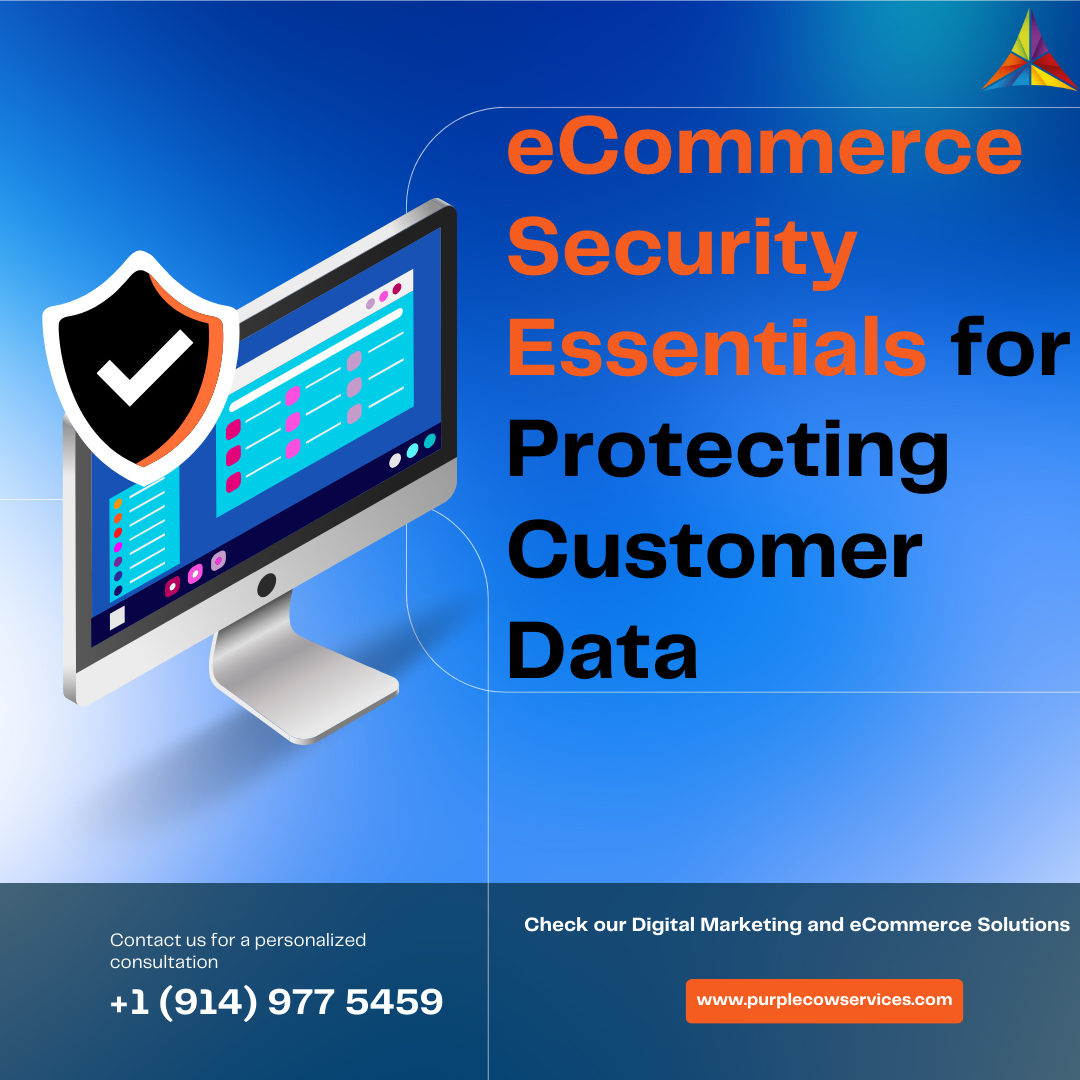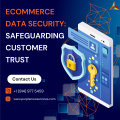In today’s digital age, where online shopping has become the norm, protecting customer data is paramount for eCommerce businesses. This blog post delves into eCommerce security essentials, offering insights and strategies to ensure the safety of sensitive information. From secure payment gateways to customer trust-building techniques, we’ll cover it all.
Understanding the Stakes
Before diving into the security measures, it’s essential to comprehend the gravity of the situation. With cyber threats on the rise, any vulnerability in your eCommerce system could lead to data breaches and reputation damage.
Cybercriminals are becoming increasingly sophisticated in their tactics, and the consequences of a data breach can be devastating. Not only can it result in financial losses, but it can also erode customer trust, leading to long-term damage to your brand’s reputation. Therefore, understanding the high stakes involved in eCommerce security is the first step toward implementing effective protection measures.
SSL Encryption: The First Line of Defense
SSL (Secure Sockets Layer) encryption is the foundation of eCommerce security. It encrypts data exchanged between a website and a visitor, ensuring that sensitive information like credit card details remains confidential.
SSL encryption acts as an impenetrable shield against data interception. When customers see the padlock icon in their browser’s address bar, they know their data is secure. This not only safeguards customer information but also builds trust, making visitors more likely to complete transactions on your eCommerce site. Implementing SSL encryption is not just a security measure; it’s a customer assurance strategy that can significantly impact your online business’s success.
Secure Payment Gateways: Fortifying Transactions
The heart of any eCommerce operation lies in the payment process. Therefore, it’s crucial to utilize secure payment gateways that adhere to industry standards. Opt for well-established payment service providers that prioritize security and compliance.
These gateways employ various security measures, including tokenization and encryption, to safeguard payment information. By integrating a trusted payment gateway, you not only protect your customers’ financial data but also demonstrate your commitment to their security, further enhancing their shopping experience.
Regular Security Audits: Proactive Vigilance
eCommerce security is an ongoing process, not a one-time fix. Conducting regular security audits is a proactive approach to identifying vulnerabilities and addressing them before they can be exploited by cybercriminals.
Through penetration testing and vulnerability assessments, you can uncover weaknesses in your security infrastructure and take corrective action. This continuous vigilance ensures that your eCommerce site remains resilient against emerging threats.
Educating Your Team: The Human Firewall
While technological safeguards are essential, your team plays a crucial role in security. Educating your employees about security best practices can prevent internal security breaches. Develop clear policies for password management, data access, and handling customer information.
Remember, a well-informed team can act as a human firewall, detecting and reporting suspicious activities that might otherwise go unnoticed. Investing in employee training is an investment in the overall security of your eCommerce business.
Two-Factor Authentication (2FA): Double Protection
Implementing two-factor authentication (2FA) adds an extra layer of security to your eCommerce site. It requires users to provide two forms of verification before granting access, typically something they know (like a password) and something they have (like a mobile device).
2FA greatly reduces the risk of unauthorized access, even if a malicious actor obtains a user’s login credentials. Encourage your customers to enable 2FA for their accounts, and consider making it a mandatory security feature for enhanced protection.
Data Backup and Recovery Plans: Preparedness for the Unexpected
Disasters can strike at any time, and data loss can be catastrophic. Implement robust data backup and recovery plans to ensure business continuity in the face of unforeseen events.
Regularly back up your customer data and eCommerce site content to secure locations. Test your recovery procedures to guarantee that you can swiftly restore operations in case of data loss. Being prepared for the unexpected can minimize downtime and protect customer data.
Compliance with Data Protection Regulations: Legal Obligations
eCommerce businesses must adhere to data protection regulations like the General Data Protection Regulation (GDPR) or the California Consumer Privacy Act (CCPA). Compliance with these laws is not just a legal requirement; it’s a commitment to safeguarding customer privacy.
Ensure that your data handling practices align with these regulations, which may include obtaining explicit consent for data collection and providing transparent privacy policies. Compliance not only avoids legal repercussions but also enhances customer trust.
Monitoring and Alerts: Real-Time Security
To stay ahead of potential threats, implement real-time monitoring and alerts. Security tools can track user activities, detect anomalies, and send alerts if suspicious behavior is identified.
Timely notifications allow you to respond swiftly to security incidents, minimizing the impact on your eCommerce business and customer data. Proactive monitoring is a key element of eCommerce security that should not be overlooked.
Customer Communication: Transparency Matters
In the event of a security breach or data incident, transparent communication with your customers is crucial. Promptly inform affected individuals, detailing the nature of the breach, steps taken to mitigate it, and recommendations for protecting themselves.
Honesty and transparency can help retain customer trust, even in challenging situations. Furthermore, it demonstrates your commitment to their well-being, fostering a positive relationship that can withstand adversity.
Conclusion
In the ever-evolving landscape of eCommerce, security is non-negotiable. Protecting customer data is not just a regulatory requirement; it’s a fundamental duty to your clientele. By implementing these eCommerce security essentials, you can fortify your defenses, earn customer trust, and ensure the long-term success of your online business. Remember, security is not a one-time task but an ongoing commitment to safeguarding what matters most: your customers and their data.
In the digital age, securing customer data is paramount. At Purple Cow, we specialize in safeguarding your eCommerce business with state-of-the-art security solutions. Our team fortifies your defenses, ensuring compliance with data protection regulations and shielding your brand from cyber threats. Partner with us to build trust, protect your customers, and secure your eCommerce success.














